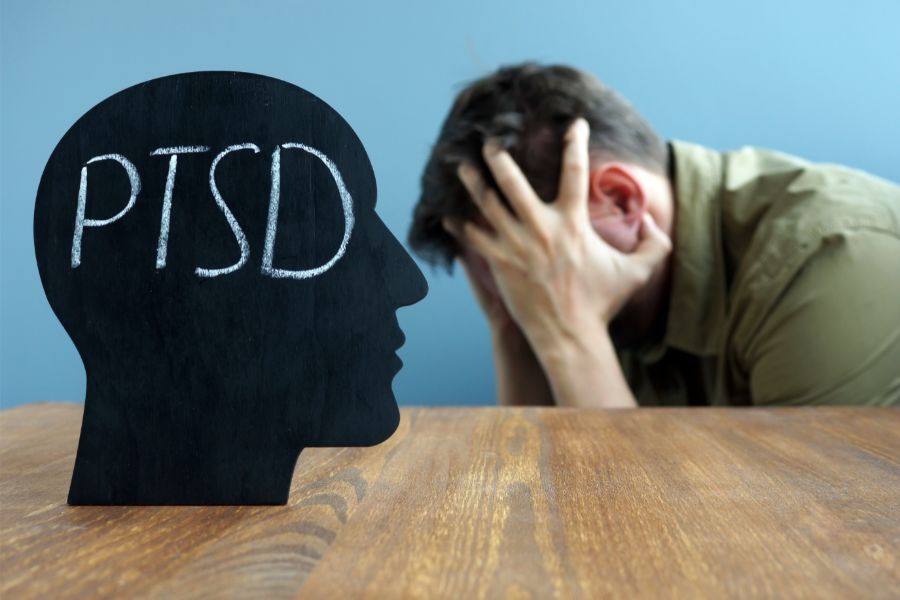Post-Traumatic Stress can develop after experiencing disturbing events. Many people associate these conditions with soldiers coming home from war, but it can happen to anyone. It is a complex condition with many facets. Keep reading to learn more about the different types of PTSD and how to get help for your symptoms.
Understanding Post-Traumatic Stress Disorder
These conditions can occur after experiencing any type of trauma. Trauma can include:
- Sexual assault
- Physical assault
- Natural disaster
- Death of a loved one
- Witnessing a traumatic event
- Emotional abuse
- Toxic relationships
- Car accident
- Close to death
There are four main symptoms commonly associated with these disorders:
- Intrusion: Intrusive thoughts such as repeated, involuntary memories; distressing dreams; or flashbacks of the traumatic event. Flashbacks may be so vivid that people feel they are re-living the traumatic experience or seeing it before their eyes.
- Avoidance: Avoiding reminders of the traumatic event may include avoiding people, places, activities, objects, and situations that trigger distressing memories. People may try to avoid remembering or thinking about the traumatic event, and they may resist talking about what happened or how they feel about it.
- Alterations in cognition and mood: Inability to remember important aspects of the traumatic event, negative thoughts and feelings leading to ongoing and distorted beliefs about oneself or others (e.g., “I am bad,” “No one can be trusted”); distorted thoughts about the cause or consequences of the event leading to wrongly blaming self or other; ongoing fear, horror, anger, guilt or shame; much less interest in activities previously enjoyed; feeling detached or estranged from others; or being unable to experience positive emotions (a void of happiness or satisfaction).
- Alterations in arousal and reactivity: Arousal and reactive symptoms may include being irritable and having angry outbursts; behaving recklessly or in a self-destructive way; being overly watchful of one’s surroundings in a suspecting way; being easily startled, or having problems concentrating or sleeping.
Acute Stress Disorder
When exposed to a traumatic event, acute stress disorder symptoms begin within a month after the event. Nightmares, flashbacks, avoidance, and fear are all Acute Stress Disorder symptoms. Without treatment, these symptoms can become more severe over time.
Uncomplicated Stress Disorder
UThis form is considered more manageable as it does not involve concurrent depression. Many people do not become depressed after a traumatic event. However, they may still experience nightmares, avoidance symptoms, and more. Learning how to work through these symptoms, recognize them when they occur, understanding triggers, and learning the tools to overcome trauma will help sufferers live an everyday, healthy life.
Complex Stress Disorder
When an individual experiences more than one traumatic event throughout their life, Complex Post-Traumatic Stress Disorder can present itself. It requires additional treatment than other forms of PTSD because there is more than one trauma to address and help the brain “untangle”. One trauma may cause nightmares; the other may cause avoidance symptoms; another might be compounding all existing symptoms. Addressing PTSD and CPTSD at the same time in treatment will give the best chances for long-term recovery.
Comorbid Stress Disorder
In some cases, this condition occurs alongside other challenges such as:
- Depression
- Chronic pain
- Anxiety
- Other mental health conditions
- Substance abuse
When an individual is experiencing one of these conditions and PTSD simultaneously, it is called Comorbid Post-Traumatic Stress Disorder. When multiple conditions exist together, integrated treatment is essential for long-term recovery. Many individuals turn to substances for temporary relief, but self-medication often worsens symptoms over time, increasing risks of overdose or suicidal thoughts.
Seeking Help at Seasons in Malibu
No matter what form of trauma-related stress you may be facing, it is important to know that recovery is possible. You do not have to live with debilitating symptoms. If you or a loved one is struggling, our PTSD treatment center offers comprehensive care to support long-term healing and improve your quality of life.

